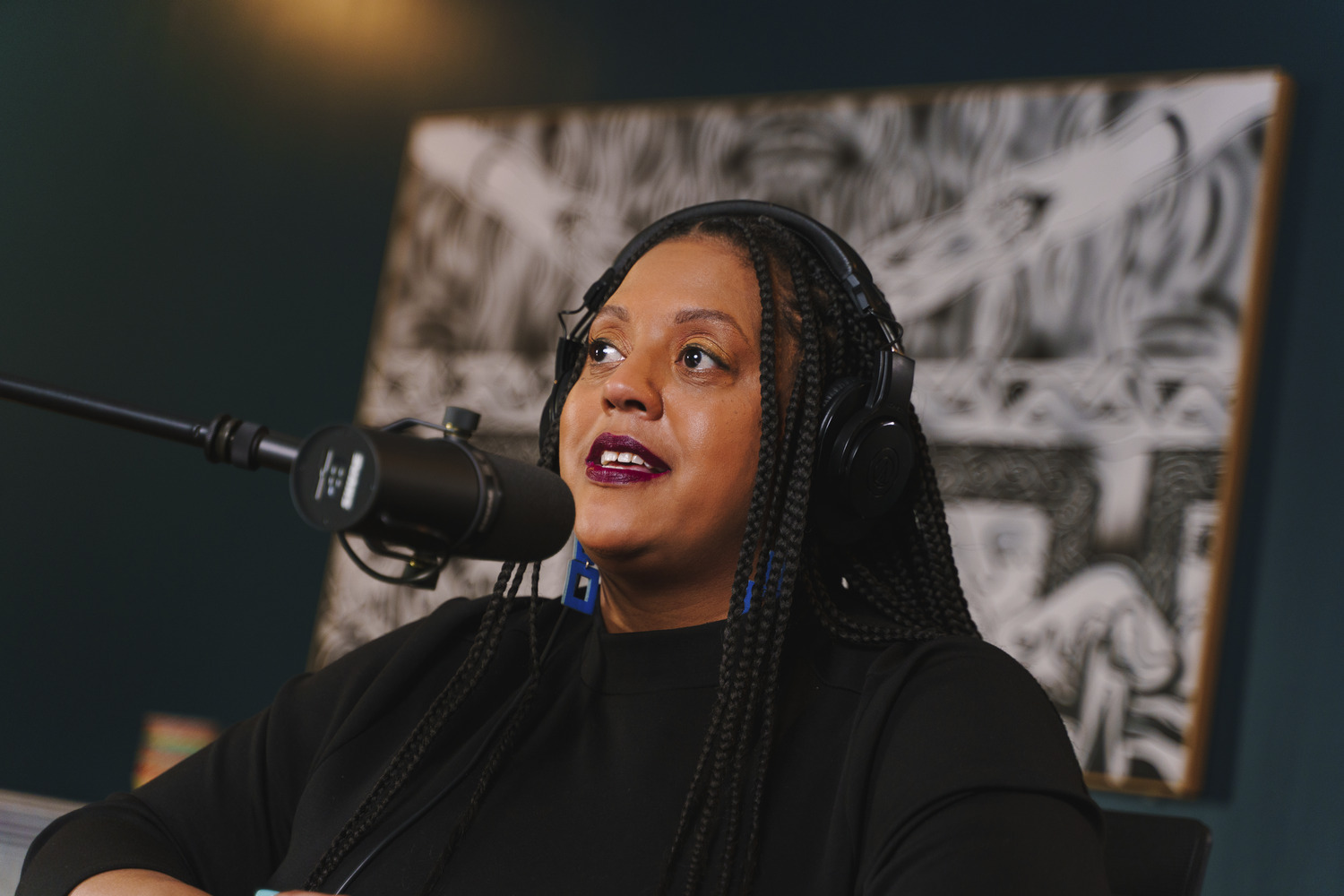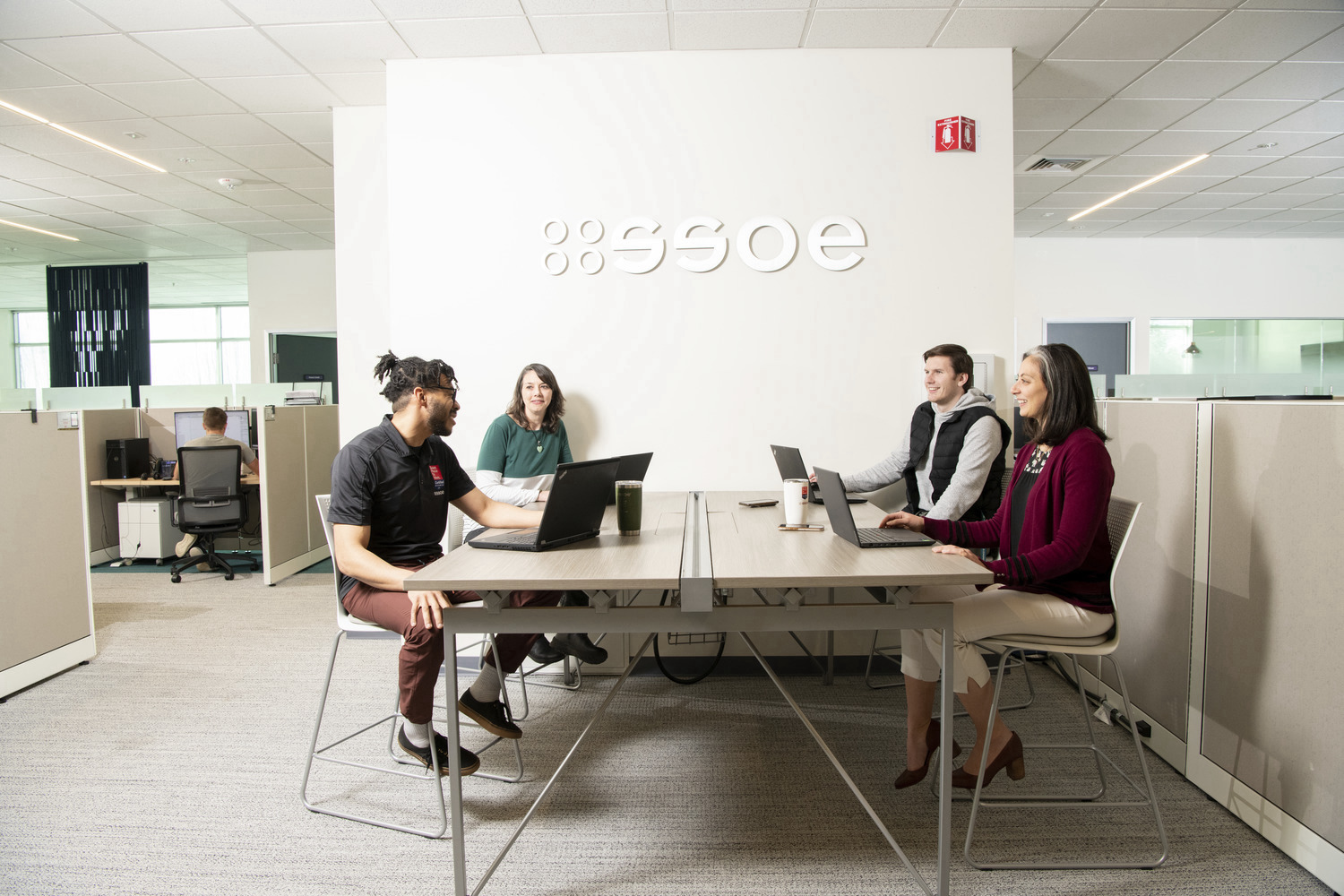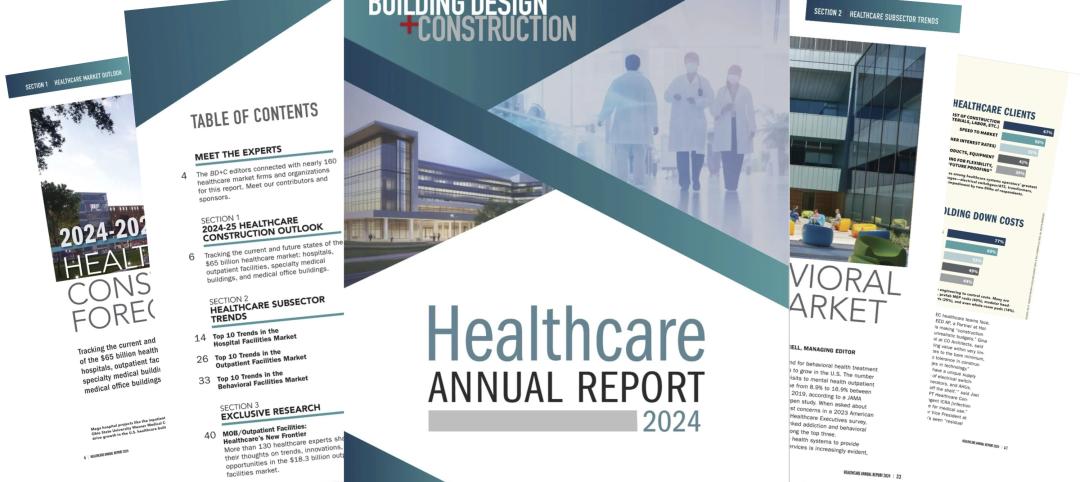In early 2022, the AE firm SSOE Group’s Board of Directors reiterated its commitment to Diversity, Equity, and Inclusion (DEI). Thus began a journey that found SSOE moving toward a more representative mix of diverse employees within its nearly 1,500-person workforce, on project teams and in corporate groups.
This mandate led to the formation of advocacy groups for underrepresented employees within the company, as well as changes in SSOE’s hiring practices and employee benefits. It has also placed SSOE in a better position to compete for projects from developers and organizations (especially in the public sector) that are seeking partners with well-defined DEI programs.
A growing number of AEC firms have been looking at themselves critically through DEI lenses that have brought into sharper relief shortcomings in their human resource policies and programs. These assessments are also being conducted at a time when a company’s DEI reputation can be a determinative factor in where skilled and educated employees choose to work.
SSOE Group can be seen as a case study for how AEC firms are adapting to employees’ shifting expectations of more-inclusive work cultures.
Top-down support for DEI efforts
Catherine Myers, PE, SSOE’s President, notes that prior to its latest actions, the firm didn’t have a specific DEI-focused group that was directly connected to the Board of Directors. That changed when, in March 2022, SSOE added a DEI committee to its Board, and hired its first Director of DEI, Candice Harrison, who had previously been external communications manager for the Toledo (Ohio) Public Schools.
To encourage team buy-in, SSOE held global DEI roundtable discussions in small groups. More than 15 percent of the company’s workers responded to questions that probed their understanding of DEI, why they thought improvements were important for the company, and what challenges in its execution might arise.
Outcomes from these sessions helped to establish DEI priorities such as enhancing diversity in the talent pipeline and setting metrics and management tools.

DEI groups give voice to different employees
After completing this company-wide assessment, SSOE Group formed internal Employee Resource Groups (ERG) to give greater voice to its underrepresented workers. One group, the Black Leaders and Collaborative Change Makers (BLACC), initially had 25 active members; the PRIDE group for LGBTQ+ individuals had 27 members; and there were 72 participants in the Women’s ERG. (At the time, SSOE had very few women in its engineering and architecture departments, particularly in leadership roles. And female technical employees created a subgroup because they had different needs regarding representation and support than the larger Women’s ERG.)
Participation in the ERGs was voluntary but strongly encouraged. Each group had at least one member of leadership as an executive sponsor who sometimes came from outside the respective underrepresented group.
Each ERG devised its own mission statement and charter, as well as a leadership/management hierarchy. Broad objectives were refined for specific actions that could range from recognizing holidays like Martin Luther King Day to revising time-off policies. Each ERG meets monthly, and in their first year, the groups were instrumental in strategic benefits planning and Lean Operating Strategy initiatives. The BLACC group assisted SSOE’s human resources department in recruitment events, and invited Dr. Melvin Garvey, the author of Dear White Friend, to speak about DEI.
SSOE has partnered with Historically Black Colleges and Universities such as Tennessee State, through which the firm conferred its first scholarship. The firm’s DEI program also partnered with the National Society of Black Engineers and the Society of Women Engineers. SSOE developed corporate metrics that impact the entire company related to DEI. Tracking those markets is tied to performance, which encourages corporate accountability.
The PRIDE ERG partnered with Hummingbird Humanity, a DEI consulting firm, to help the group elucidate the history of the gay pride movement and to dive deeper into gender identity.
DEI can provide a competitive edge
As part of its DEI journey, SSOE Group conducts virtual training sessions on diversity. The firm required attendance for employees to receive their bonuses. According to Harrison, the focus of SSOE’s diversity efforts has been to embed DEI into daily operations, “creating a space where our employees feel as though they can bring their whole selves to work and have a sense of belonging.”
As the cultivation of these values becomes more intensified, SSOE can distinguish itself with potential partners and incoming employees. “What we’ve developed is more focused on measurement,” said a company spokesperson.
Related Stories
MFPRO+ News | Jul 15, 2024
More permits for ADUs than single-family homes issued in San Diego
Popularity of granny flats growing in California
Codes and Standards | Jul 15, 2024
New York City code update changes definition of a major building
Changes affecting how construction projects in New York City are permitted will have significant impacts for contractors. On Dec. 11, the definition of a major building in the city’s code will change from 10 stories to seven, or 75 feet. The change will affect thousands more projects.
Adaptive Reuse | Jul 12, 2024
Detroit’s Michigan Central Station, centerpiece of innovation hub, opens
The recently opened Michigan Central Station in Detroit is the centerpiece of a 30-acre technology and cultural hub that will include development of urban transportation solutions. The six-year adaptive reuse project of the 640,000 sf historic station, created by the same architect as New York’s Grand Central Station, is the latest sign of a reinvigorating Detroit.
Healthcare Facilities | Jul 11, 2024
New download: BD+C's 2024 Healthcare Annual Report
Welcome to Building Design+Construction’s 2024 Healthcare Annual Report. This free 66-page special report is our first-ever “state of the state” update on the $65 billion healthcare construction sector.
Transit Facilities | Jul 10, 2024
Historic Fresno train depot to be renovated for California high speed rail station project
A long-shuttered rail station in Fresno, Calif., will be renovated to serve as the city’s high speed rail (HSR) station as part of the California High-Speed Rail Authority system, the nation’s first high speed rail project. California’s HSR system will eventually link more than 800 miles of rail, served by up to 24 stations.
Government Buildings | Jul 8, 2024
GSA adopts new accessibility guidelines for federal properties
The U.S. General Services Administration (GSA) adopted a new rule with new accessibility guidelines for federal buildings. The rule establishes that pedestrian facilities in the public right-of-way are readily accessible to and usable by people with disabilities.
Office Buildings | Jul 8, 2024
Office vacancy peak of 22% to 28% forecasted for 2026
The work from home trend will continue to put pressure on the office real estate market, with peak vacancy of between 22% and 28% in 2026, according to a forecast by Moody’s.
Virtual Reality | Jul 8, 2024
Can a VR-enabled AEC firm transform your project?
With the aid of virtual reality and three-dimensional visualization technologies, designers, consultants, and their clients can envision a place as though the project were in a later stage.
Green | Jul 8, 2024
Global green building alliance releases guide for $35 trillion investment to achieve net zero, meet global energy transition goals
The international alliance of UK-based Building Research Establishment (BRE), the Green Building Council of Australia (GBCA), the Singapore Green Building Council (SGBC), the U.S. Green Building Council (USGBC), and the Alliance HQE-GBC France developed the guide, Financing Transformation: A Guide to Green Building for Green Bonds and Green Loans, to strengthen global cooperation between the finance and real estate sectors.
Codes and Standards | Jul 8, 2024
New York State building code update would ban fossil fuels in new buildings
New York’s Building Code Council is set to include the All-Electric Buildings Act in its 2025 code update. The Act would ban natural gas and other fossil fuels in new buildings.

















